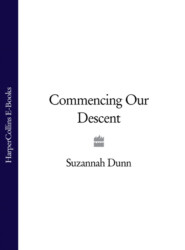По всем вопросам обращайтесь на: info@litportal.ru
(©) 2003-2024.
✖
Tenterhooks
Автор
Год написания книги
2018
Настройки чтения
Размер шрифта
Высота строк
Поля
‘I’m only sniffing.’ She draws the cigarette along the length of her smile, and lingers on the tip, where she inhales dramatically.
Then we both join in with Bowie for, ‘Ch-ch-ch-ch-changes …’
When we have finished this, our favourite line, there is silence; this is a hard line to follow, and anyway there is nothing new to say.
After a while, I ask around the room, ‘Do any of us need to do marine biology?’
Trina mutters, ‘Like fuck.’
Avril agrees, ‘Never ever.’
Rachel adds, ‘And I think that we can speak for Susie, too.’
Susie is taking biology because she wants to be a nurse. Trina wants to be a physio: manhandling rugby players, she tells us and we do not know if she is serious. No one knows what Avril wants to do. Rachel’s reasons for biology are the same as mine. We became friends through biology, on the back bench in O level, from where we would counter Mr Bennett’s descriptions of flawless function with questions about diseases and their cures.
Suddenly phlegm whinnies in Lawrence’s throat. ‘Well …’ his voice, in our room, sounds odd; seems to sound odd to him, too, because he blinks convulsively, his eyes like moths, and his mouth thins but falls short of a smile. He tries again, rushes, ‘I want to be a vet, so I have to study animals, but not …’ and he fades.
‘Not whelks,’ Rachel says for him, turning to him.
‘No.’ His eyes fix on her, seem to implore.
‘Of course not whelks,’ she reassures him, before returning to the rest of us to announce, ‘so, the Nobel Prize for marine biology is awarded to Trina.’
Trina struggles up onto her elbows and whines a quizzical, ‘My arse.’
Rachel explains, ‘Nautical Night’: Trina’s favourite club, once a month on a boat on the Thames.
Day Three, and Jim has finished our Briefing, has told us what we have to do today: we have to mark square metres on a rock face and note the distribution of barnacles within this grid. He did not apologize; on the contrary, he seemed to think that his little exercise would appeal to us, that this would seem like a good way to spend a day. Yesterday, when we were supposed to be probing rock pools, I wandered and came across Lawrence. He was crouched behind a boulder, lighting a new cigarette from the previous one. When he was dabbing the old stub onto a barnacle, he saw me. His mouth was so busy with the second cigarette that he could only manage to hoist his eyebrows in greeting. I was so shocked that I could think of nothing to say but a sympathetic, ‘They’re stale.’
He exhaled, sighed smokily, ‘They’re better than nothing.’
I bumped and tottered back over the rocks to Rachel and asked her, ‘Did you give Lawrence some of those horrid cigarettes?’
She looked up from her rock pool, and raked through her wind-whipped and salt-stiffened hair. ‘Yes, a few, although he tried to say no.’ Her frown meshed with the streaks of her hair. ‘Why?’ Breathless with the sea breeze, I laughed helplessly as I informed her, ‘He’s behaving appallingly, up there: smoking, and burning barnacles.’
She stood up, grinned slowly, and reached into her mouth for a limpet of chewing gum which she dropped into the rock pool before she murmured appreciatively, ‘Loz unleashed.’
Now Jim is slamming through the swing door into the courtyard, keen to lead us down to the shore for another day of excitement. But every day we are allowed a few minutes before we leave, in which to zip and Velcro ourselves into our layers and to fetch anything that we have forgotten. Then Jim will bark, ‘Notebooks?’ Because according to him, the notebook is the indispensable tool of the marine biologist: a pocket stiff notebook, in his words. A pocket stiff, in ours. As we leave the bench to follow him, my pocket stiff falls open onto the floor. Bending down, I scan the displayed page, the words which, on our first day, we had been told to copy from Jim’s blackboard: Supplementary fauna key: Limpets; if no groove, look into shell mouth; if mother-of-pearl, then top-shell, if no mother-of-pearl, then winkle. Beneath this I had scrawled, ‘Ziggy Stardust’, Trina’s favourite Bowie track, which she sang for hours in the minibus. I pick up the book by the cover and the pages spin to today’s copied words, the chart on which we are supposed to record the distribution of barnacles: on bare rock, on weeded rock, in rock pools, in crevices, on pebbles, under boulders, on plants, on animals. Across the top of this chart I have written ‘Suffragette City’, which is my own favourite.
I am going to check on Rachel. When I came into the Briefing and told Mr Stanford that she was too ill to leave her bed, he turned from me without a word and hurried across the courtyard to our dormitory block. That was five minutes ago, and he has not yet returned. During the night, I woke twice, briefly, barely, to see Rachel away from her bed. The first time, she was standing by the window, stooped over something in her hands. She was pearly in the overspill of floodlight from the courtyard. Her T-shirt, the hem flopped on the tops of her thighs, turned her into a child’s drawing of a girl in a dress: the triangular dress and long lines for legs. But no colour: all of her was pearly, even her eyes. And the earrings: the show of earrings reduced to nothing, to polite pearls. She was drooping, and then came the sound that told me what she was doing: the smash of a pill through a membrane of silver foil.
I asked, ‘You okay?’
She seemed unsurprised to hear me, but this apparent calm could have been simply the careful slowness of her turn towards me. A small sound came despite her closed mouth; not quite a groan. Then she made an effort to elaborate: ‘I’m having a baby.’
Period pain. In reply, I made a similar sound, but lower and heavier: the appropriate show of sympathy. Then sleep must have washed up over me again and pulled me away.
The second time I opened my eyes, she was coming into the room; and behind her, the corridor buzzed with the far away roar of water into a toilet bowl.
‘You okay?’ I checked again.
But by now she was more resigned, throwing me an almost tuneful, ‘Uh-huh,’ as she crossed the room to her bed. I heard the rasp of drawn bedclothes, then the wince of bedsprings beneath her.
This morning she lay in bed while we moved around her. She moved only her eyes, which were no longer pearls but dry pink petals. I was followed by them as I rushed around the room, finding my clothes and throwing back questions. ‘So what do I tell Mr Stanford?’
‘That I’m ill.’
‘Yes, but do I say with what?’
‘Up to you.’
‘Have you had any painkillers this morning?’
‘Three.’
‘Will you be okay?’
‘Fine.’
‘Sure?’
‘Sure.’
Mr Stanford had not seemed to want to know the details, had said nothing before he turned and hurried away. But now, as I come through the door to the dormitory block, the corridor is full of his voice, a voice which washes over the walls, ‘Well, I simply do not believe that an aspirin or two won’t fix you.’
Rachel’s voice burns into his. ‘How would you know? And I’ve had an-aspirin-or-two, in fact I’ve had three.’
Turning the corner, I see them in the doorway to my room: they mirror each other across the threshold, propping up the doorframe, arms folded hard. There are squeaks from Mr Stanford’s buttercup-yellow waterproofs. Rachel has draped a cardigan over the T-shirt which emphasizes the knot of her arms.
Mr Stanford creaks taller, ready to move away. ‘Fresh air will help.’
Rachel bends fiercely into the fold of her arms: ‘I can’t, okay?’ she bellows after him, even though he has moved no more than half an inch, has swayed rather than moved. ‘I can’t go clambering over rocks all day with a swollen endometrium.’
Endometrium is impressive; I wish that I could see Mr Stanford’s appreciation. The tone of his reply, however, is studiously bland: ‘I can’t have you lounging around here all day. So I’ll expect you to join us in five minutes.’
I am close to his shiny back, now, but he does not know that I am here, nor, apparently, does Rachel, because her eyes do not move from his face. Behind me, I can hear someone bumping through the door.
I try to appeal, ‘Mr Stanford …’
But Rachel finishes, ‘You’re a pathetic wanker,’ and flops away.
Mr Stanford swings deep into the room, silver eddies on his waterproofs, to yell, ‘I’ll have you for that, no one speaks like that to staff, you’ll be in a lot of trouble when we go back to school.’
‘Oh yes?’ her voice comes weary and muffled from the depths. ‘And who’ll believe you?’
His hands rise, then slap back onto the doorframe: dismay, then emphasis, ‘Don’t be ridiculous.’ But I see the nervous flutter of his glue-yellow fingernails on the white-painted wood. ‘In any case,’ he swells, ‘I have witnesses.’ And his face slides around to me.
I have to stand my ground, to tell him, ‘I don’t think that you do.’










